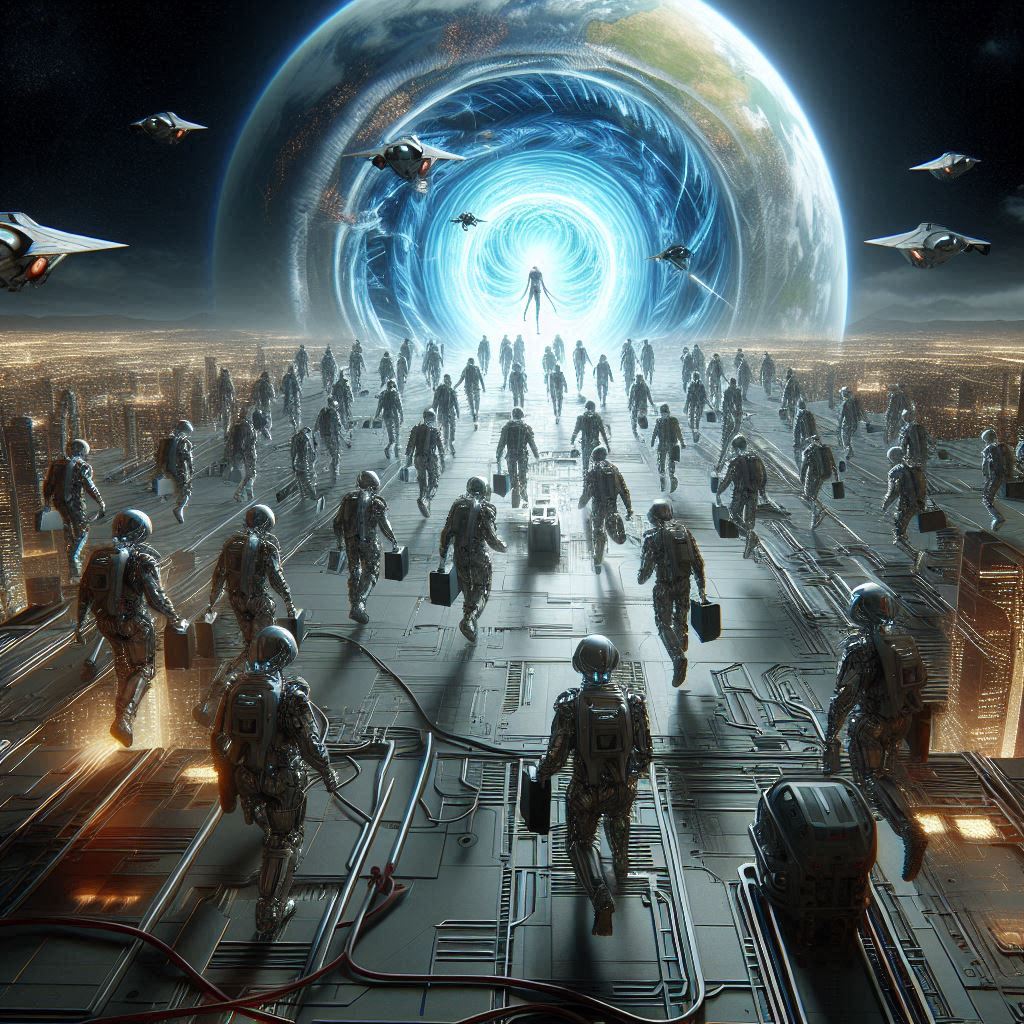I’ve rewritten Part 2, particularly the corridor paragraph – please read from there. Mart
Prologue
Part 1
The resurrection of the Father
Father Ellis Simpson woke to the sound of nothing other than his laboured breathing, a state of quietude which lasted only a few seconds before a soul shattering agony leapt at him like an avenging demon, invading every muscle, sinew, and bone in his body. He could feel a grand mal tinkering with his cognition right at the edge of his perception and he reflexively glanded Kopiramate 11 to suppress it, but his system had nothing for pain.
A green light flashed on a panel in front of him. It was so bright he could glimpse it through his tightly closed eyes. Forcing one eye open, he saw it was more than one light. A series of letters in a readout panel read: “Hibo capsule opening in:” The numbers next to the message were counting down in seconds and showed just over two minutes to go.
Tentatively moving one emaciated arm to test the lid of his capsule, Ellis sucked in air tasting of chlorinated faecal droplets as the grinding of unused joints added to his distress. He gagged.
“Good morning, Father Ellis,” said a soft, female-sounding voice. “I am Maribel, your ship’s intelligence. I observe you are in some pain, so I will administer some aid for that.”
“Please,” grunted Ellis. He tried to turn his head to the speaker on the left wall of the capsule, but stiffness forbade more than a few millimetres of movement. A faint hum preceded a growing glow of relief, and he relaxed in his cocoon.
“You have been hydrating for four hours, so with analgesics you should be able to function once your capsule opens,” Maribel informed him in her gentle, sing-song voice. “However, I should caution you not to make any rapid movements until you have fully acclimatised in about ten hours.”
“How long have I been under?” Ellis asked.
“One year and nine days,” Maribel said.
“A year!” Ellis jerked forward and winced, instantly regretting it as his body complained. “We were supposed to be travelling for five months.”
The original mission parameters were for the ship to accelerate at one gravity for two months, then decelerate to their destination for a further three months. Five months in total. A year must have taken them beyond the Oort Cloud into interstellar space.
“The mission has changed,” Maribel said. “We are no longer looking for mining opportunities.”
Before Ellis could reply, the capsule in which he was encased made a muted clank. The top split in two and slid back to leave him lying on a gurney. Two figures stepped into view.
“Easy Father,” said the first, a short woman dressed in a white lab coat, her face a blend of three or four ethnicities arranged with easy symmetry, as if by diplomatic agreement. Ellis recognised her as the ship’s doctor, Eloise Mugangwe. “You look rough. These damn old-fashioned V6 Hibo-caps are useless for anything over six months. We’re going to give you a sedative, and then pump some fast-nutrients into you.”
“Wait,” Ellis croaked. “Before you knock me out. Who authorised the extension of this mission? This is Vatican funded, and I should have been consulted.”
“Father, the Vatican has gone. Earth was raided by an alien task force after you went into hibo,” said the second, a thickset man in a military flight suit, whom Ellis did not know. “The whole of Rome was levelled before we fought them off and I was despatched by fast picket from Jupiter Station to intercept you. This is a military mission now.”
“If the Vatican has gone, who authorised it?” Ellis asked, his mind racing with the implications of the Vatican being destroyed and by aliens no less.
“New Rome has been established in Compton, Maryland, USA,” the military officer said. “There has been a convocation of the remaining cardinals and a new Pontiff elected.”
Ellis squinted at his name tag. It said, “Lieutenant Bright.”
“Thank you, Lieutenant,” Ellis said, feeling relief in the knowledge the church had continued. “Who is the new Pope?”
“Cardinal Skaunce from New York. He hasn’t chosen a papal name yet, or at least he hadn’t when I got my orders. I haven’t had chance to make further enquiries.” said Bright. “My briefing notes say you know each other.”
Ellis did indeed know Pierre Skaunce, they lodged together in London when they were jointly assigned to the diocese. Skaunce was a moderniser, a man with his eyes on the future. He was a proponent of women priests, ending ecclesiastical celibacy, and an open celebration of non-binary love. Things were about to be shaken up.
Cardinal Skaunce once told him sex wouldn’t exist in the future. “It’ll all be sanctified steel onanist basins and long-distance frontal lobe stimulation. If you ever meet your significant other in the street, you probably won’t recognise them.”
This convinced him the church should cast aside Episcopal celibacy and follow the Eastern Orthodox and Catholic Churches who required married clergy to abstain from sexual relations only for a limited period before celebrating the Eucharist. He was of the view that protecting God’s gift of procreation might become the ironic preserve of the priesthood.
“How bad was the destruction?” Ellis asked, saying a silent prayer for the dead.
“About a billion dead. Most major cities damaged or destroyed.” Bright’s features tightened, as if some memory attached itself to the statistics, and Ellis added a prayer for the man’s peace. “Infrastructure is shot, but thankfully repairs are underway and the whole thing has brought humanity together.”
Unity in adversity, thought Ellis, it is always the way with humans. If you want to bring people together, find a common enemy.
“How did they get here?” Ellis was a geologist by training, but he knew enough about physics to understand interstellar travel was more or less impossible.
“Ah, yes,” said Bright. “That’s why I’m here. When you’re sufficiently recovered, I’ll brief you.”
The man stepped back, allowing Mugangwe to administer a sedative, and Ellis dropped off the edge of consciousness into a world of nightmares.

